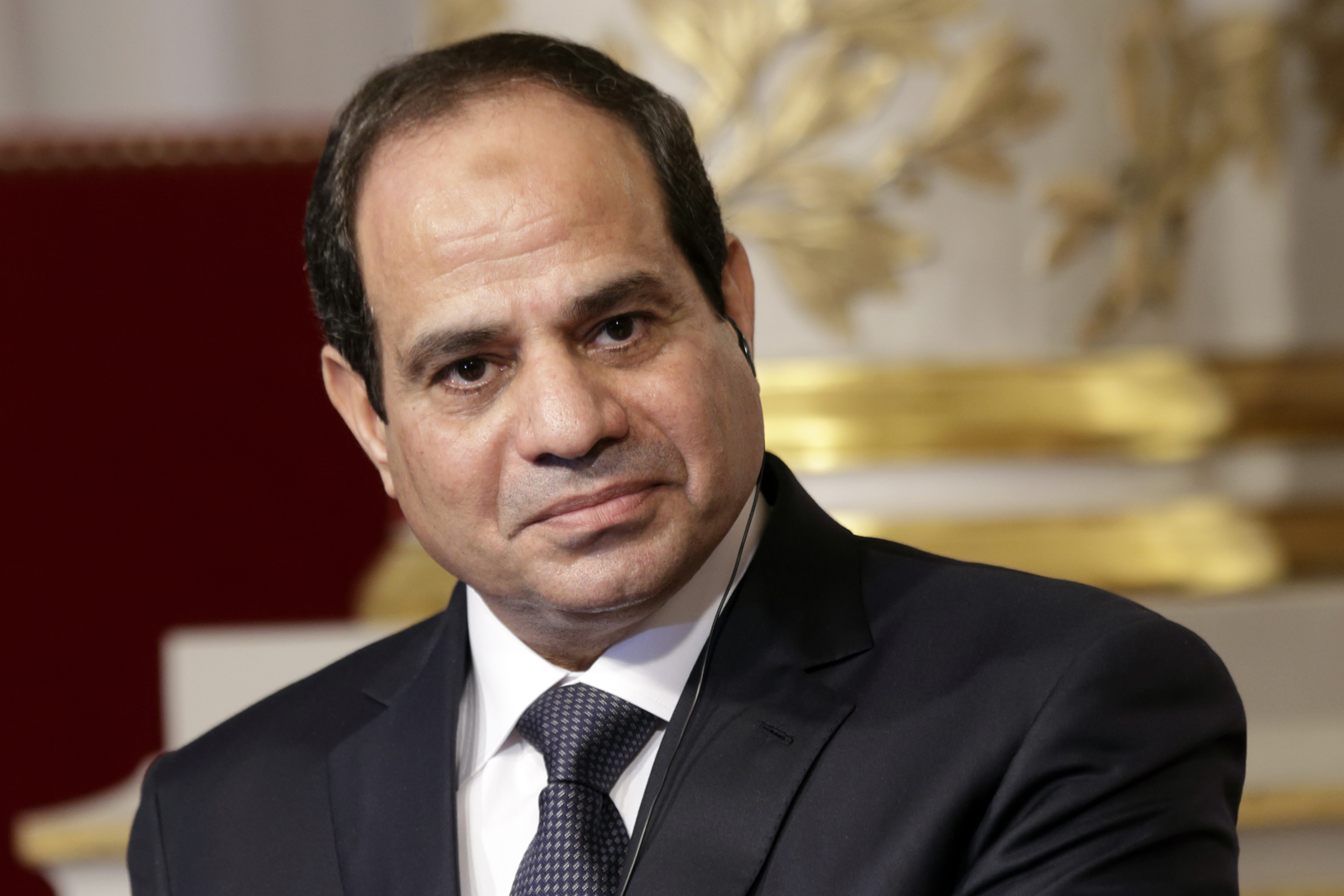Latest NEWS
- Aswat Masriya, the last word
- Roundup of Egypt's press headlines on March 15, 2017
- Roundup of Egypt's press headlines on March 14, 2017
- Former Egyptian President Hosni Mubarak to be released: lawyer
- Roundup of Egypt's press headlines on March 13, 2017
- Egypt's capital set to grow by half a million in 2017
- Egypt's wheat reserves to double with start of harvest -supply min
- Roundup of Egypt's press headlines on March 12, 2017
Egypt to criminalise insults to 'revolutions' of 2011 and 2013 - spokesman

Egyptian President Abdel Fattah al-Sisi delivers a statement following a meeting with French President Francois Hollande at the Elysee Palace in Paris, November 26, 2014. REUTERS/Philippe Wojazer
CAIRO (Reuters) - President Abdel Fattah al-Sisi plans to issue decrees to criminalise insults to Egypt's two "revolutions" of 2011 and 2013, a spokesman said on Wednesday.
The first, a street uprising, toppled longtime military-backed autocrat Hosni Mubarak. The second also arose from mass anti-government protests but was taken over by the military then led by Sisi and brought about the overthrow of freely elected Islamist President Mohamed Mursi after a year in office.
The Muslim Brotherhood and other opponents of Sisi say the mid-2013 uprising was a coup rather than a revolution, and fear the proposed decree will stifle their scope to express such views amid a broader crackdown on public dissent by Sisi.
"Yes, it is true, but it has to be approved first by the cabinet," Sisi spokesman Alaa Youssef said of the planned law.
Egyptian media reported that the law was first announced following a meeting with young journalists Tuesday evening.
"Preparations are under way for two presidential decrees to criminalise the defamation of the January 25 (2011) and June 30 (2013) revolutions," Sisi said in a statement following the meeting, according to state news agency MENA.
The statement said the decrees come "within the framework of combating corruption and protecting public funds..." MENA said, and the cabinet would act on Sisi's move shortly.
After spearheading the overthrow of Mursi and his Muslim Brotherhood last year, in which hundreds of Mursi supporters were killed in the streets and thousands jailed, Sisi went on to be elected president in May.
But the crackdown that began with the Muslim Brotherhood and other Islamist groups has expanded to include secular activists and others critical of Sisi's government.
Critics point to long-delayed parliamentary elections, which has allowed Sisi to rule by decree, as an example of how he has concentrated power in his cabinet.
Analysts said Sisi, with his planned decrees, appeared to be seeking to put the uprisings of 2011 and 2013 on a par with each other to help solidify his political position.
Allowing civilians to be tried in military courts and restricting protests have further eroded hopes among liberals that Egypt's second uprising would finish the job begun with Mubarak's ouster in 2011.
This weekend, a court dismissed charges against Mubarak for ordering security forces to kill protesters during the 2011 uprising.
That verdict, and others handed down to Mubarak-era figures, has led some to conclude that the old regime that existed before either revolution is back in all but name.
(Reporting by Shadi Bushra; Editing by Mark Heinrich)










